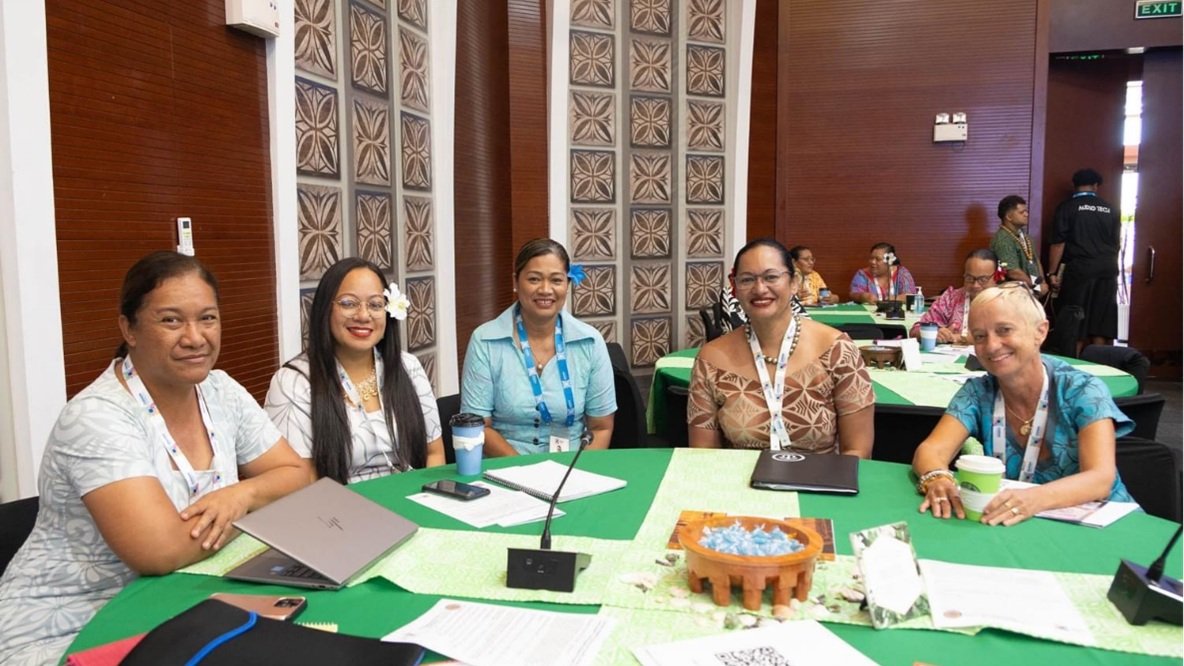By Susana Laulu, Program Director, PASAI
Last month Samoa hosted the Commonwealth Heads of Government Meeting (CHOGM). The event opened with forums for women, youth, people and business. I was fortunate to attend the Commonwealth Women’s Forum (CWF) which brought together about 400 delegates with the theme, Collective Action for a Resilient Commonwealth: Solidarity for Gender Equality.
The CWF aim was to explore and share the critical challenges and opportunities to advance women’s empowerment and gender equality in the Commonwealth.
Women’s leadership, economic empowerment and climate finance
It was noted that despite encouraging progress on legislative reform, women continue to encounter challenges in realising their ambitions of becoming leaders in various sectors. Issues such patriarchy, misogyny, biases and gender-based violence, including technology-facilitated violence, curtail women’s ambition and opportunities in both public and private leadership.
CWF panellists recognised the need to continue support for women in leadership and to include their perspectives in all peace and security efforts.
The CWF acknowledged that female entrepreneurs often face systemic obstacles when seeking investment for their businesses. Eliminating difficulties to access finance is important for the growth of women-led businesses and poverty reduction. It leads to more diverse and innovative solutions, enables women to identify new markets and export their services and goods, and creates a more inclusive and prosperous economy for all.
Interventions by development partners, governments and policy makers should strive to meet the needs of women and must focus on working with communities. The interventions should address factors such as location, literacy levels and access to technology. More importantly, women must be engaged to the point where they are comfortable and willing to take the necessary steps or make the changes required to move to the next level.
I joined an interactive discussion on increasing access and deployment of gender-responsive climate finance. We discussed the lack of information on climate finance unaided by language that is too technical. We recommended building the capacity of women to access climate finance by making processes simpler and quicker. We noted policy making and solution design should involve inclusive participation.
CWF delegates L to R: Susana Laulu, Faith Esera-Viane, Loau Donina Tili Vaa (CEO of the Samoan Ministry of Women’s, Community and Social Development), Salma Hazelman and Vanessa Schuster
The Prime Minister of Samoa, Hon Fiame Naomi Mataafa, in talanoa (conversation) with the Prime Minister of Tuvalu, Hon Feleti Penitala Teo, noted that women, youth, children and people with disabilities must be central to global, regional and national strategies for sustainable development and climate resilience.
The CWF was very informative about the critical issues impacting women and gender equality. Insights from the CWF will be useful to us in improving our initiatives to promote gender equity, disability and social inclusion (GEDSI).
Promoting female leadership in SAIs
As explained in a previous blog post, Establishing a community of women in audit, we have been running a Community of Practice (CoP) for women working in our SAIs to gather virtually and benefit from each other’s insights.
October’s CoP session focused on the experiences of female graduates in SAIs, emphasising supportive induction processes, mentoring and addressing cultural challenges. A total of 27 participants explored various aspects of working in SAIs, including:
insights on supportive and flexible environments, robust induction programs and continuous professional development opportunities
challenges such as managing priorities, maintaining work–life balance and developing public speaking skills essential for public accountability
advice for new graduates, emphasising the value of informative induction programs, mentorship and CPD opportunities while acknowledging the need to build confidence and adapt to audit work pressures
the welcoming and supportive nature of SAIs, including access to mentors and networking opportunities
improvements such as comprehensive training on legislation and cultural protocols, recommending extended induction programs to better prepare graduates.
The key takeaways included the importance of effective induction processes, coaching to address cultural challenges and strong support systems within SAIs to ensure professional growth and integration.
The experiences shared by 5 female graduates highlighted the significance of effective induction programs in navigating challenges within SAIs, particularly when engaging with senior government officials. Their insights underscored the value of structured onboarding and support systems in fostering professional growth and addressing workplace complexities.
Australian Deputy Auditor-General, Rona Mellor, will join our next CoP session on Wednesday 4 December. In this follow-up we will assess whether SAIs have implemented measures to promote work–life integration and enhance induction programs.
Impacts on auditing
The Revitalised Pacific Leaders Gender Equality Declaration was made last year. Pressure continues to build on UN Member States to “leave no one behind” in achieving the Sustainable Development Goals (SDGs) of the 2030 Agenda. This includes SDG 5: Achieve gender equality and empower all women and girls.
To address the ongoing challenges that hinder women's progress and ambitions at all levels of society, leaders in the Pacific region have strengthened their commitments to support and implement legislation and policies that create opportunities for women's empowerment.
SAIs can create value in their jurisdictions by evaluating the success of government financial and policy commitments to improve women’s empowerment and gender equality. They can also be model institutions within the public sector.
References
CWF program (with names of panellists)









